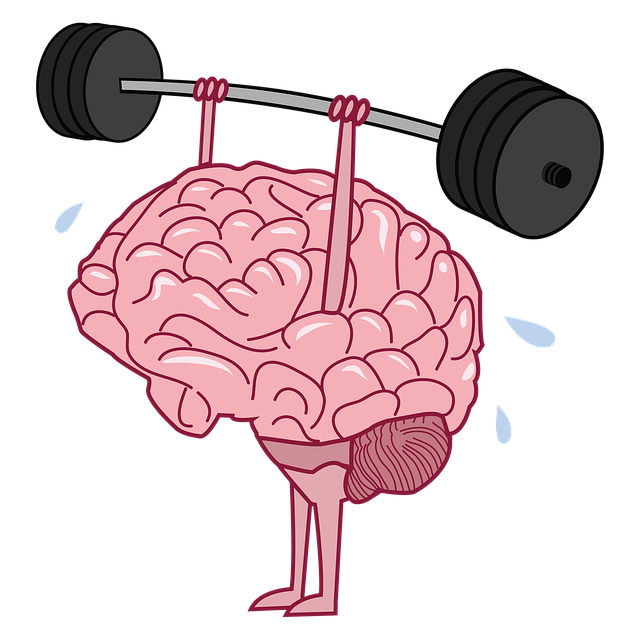Boulder American Sign Language (ASL) therapy professionals prioritize risk assessment and management, integrating self-care practices and emotional regulation techniques for safe, supportive environments. They navigate communication gaps, cultural sensitivity, and ethical challenges through continuous professional development and open communication. Boulder ASL Therapy (BASLT) employs comprehensive strategies, including staff training, clear policies, community outreach, and case study analysis to ensure holistic, high-quality care that addresses anxiety, depression, and client well-being.
In the field of mental health, risk assessment is an indispensable tool for ensuring client safety, particularly within specialized practices like Boulder American Sign Language (ASL) therapy. This comprehensive guide explores the nuances of risk assessment in ASL therapy settings. We delve into identifying potential hazards, ethical considerations, and strategies to mitigate risks effectively. Through real-world case studies from Boulder’s ASL community, this article offers valuable insights into enhancing safety and fostering a secure therapeutic environment.
- Understanding Risk Assessment in Mental Health Practice
- Identifying Potential Hazards in American Sign Language Therapy
- Ethical Considerations for Mental Health Professionals
- Strategies for Mitigating Risks and Enhancing Safety
- Case Studies: Effective Risk Management in Boulder's ASL Therapy Settings
Understanding Risk Assessment in Mental Health Practice

Risk assessment is a fundamental aspect of mental health practice, ensuring the safety and well-being of both clients and professionals. For mental health practitioners, such as those offering American Sign Language (ASL) therapy in Boulder, understanding risk assessment involves recognizing potential hazards within the therapeutic relationship and implementing strategies to mitigate them. This process involves a comprehensive evaluation of various factors that could impact a client’s mental state or pose risks during therapy sessions.
By integrating self-care practices and emotional regulation techniques into their workflow, professionals can enhance their ability to assess and manage risks effectively. For instance, recognizing the signs of burnout or exacerbating mental health conditions in oneself and one’s clients is crucial. Implementing strategies for anxiety relief and fostering open communication channels can create a safe and supportive environment, promoting positive outcomes while minimizing potential risks.
Identifying Potential Hazards in American Sign Language Therapy

In the field of Boulder American Sign Language (ASL) Therapy, professionals must be vigilant in identifying potential hazards that are unique to this specialized practice. One primary concern lies in ensuring effective communication while bridging the gap between verbal and non-verbal forms of expression. Misunderstandings can occur due to nuances in ASL interpretation, especially when dealing with complex emotional concepts or subtle expressions. This is where professional development in empathy building strategies becomes paramount, as therapists must constantly hone their skills in deciphering and conveying nuanced meanings accurately.
Furthermore, cultural sensitivity in mental healthcare practice is a critical aspect that cannot be overlooked. Given the diverse nature of the deaf community, therapists must be adept at navigating cultural differences in communication styles, values, and beliefs. This includes understanding and respecting individual preferences for ASL usage, interpreting body language, and recognizing non-verbal cues specific to the deaf culture. Additionally, effective mood management strategies are essential to creating a safe therapeutic environment, as the unique communication methods employed in Boulder ASL Therapy can sometimes evoke intense emotions or lead to misunderstandings if not handled delicately.
Ethical Considerations for Mental Health Professionals

Mental health professionals, like those offering Boulder American Sign Language Therapy services, operate within a complex ethical framework. They are entrusted with vulnerable individuals seeking support for their emotional and psychological well-being. As such, it’s paramount they uphold the highest standards of integrity and professionalism. This involves balancing client confidentiality with the need to recognize and address potential risks, including their own vulnerability to burnout.
Ethical considerations necessitate open communication, informed consent, and a clear understanding of one’s limitations. Professionals must prioritize self-care practices and implement strategies for burnout prevention, such as setting healthy boundaries, engaging in stress reduction techniques (including anxiety relief methods), and seeking support from colleagues or supervision. By doing so, they ensure they remain present, attentive, and effective in their work, ultimately fostering a safer and more supportive environment for their clients.
Strategies for Mitigating Risks and Enhancing Safety

In the realm of mental health care, mitigating risks and enhancing safety are paramount for professionals like those at Boulder American Sign Language Therapy (BASLT). Strategies for risk mitigation encompass a multi-faceted approach. Firstly, regular staff training on identifying and managing client risks is essential, incorporating topics such as crisis intervention and de-escalation techniques tailored to diverse populations served. Additionally, establishing clear policies and protocols for reporting and documenting potential hazards ensures a structured response.
Beyond these measures, fostering an environment of open communication encourages clients to share concerns or triggers openly. Community Outreach Program Implementation initiatives can further strengthen safety nets by connecting individuals with support services and promoting Mental Health Awareness. These proactive steps not only safeguard professionals and their clients but also contribute to a holistic Mental Health Policy Analysis and Advocacy framework, ultimately enhancing the overall quality of care provided at BASLT.
Case Studies: Effective Risk Management in Boulder's ASL Therapy Settings

In Boulder’s American Sign Language (ASL) therapy settings, case studies have shown effective risk management strategies to be instrumental in ensuring safe and supportive environments for both healthcare providers and their deaf or hard-of-hearing clients. These scenarios highlight the unique challenges faced by ASL therapists, who must navigate cultural barriers, language nuances, and potential mental health issues within a diverse population. By integrating comprehensive risk assessment tools, these professionals are able to proactively identify and mitigate risks associated with anxiety relief, depression prevention, and overall client well-being.
The success of these cases underscores the importance of Healthcare Provider Cultural Competency Training in fostering inclusive practices. Through such training, therapists gain valuable insights into the experiences of deaf individuals, enhancing their ability to offer tailored services that address specific cultural and linguistic needs. This approach not only improves therapeutic outcomes but also reinforces the role of Boulder ASL Therapy as a model for best practices in mental health care, emphasizing both safety and inclusivity.
Mental health professionals, including those practicing Boulder American Sign Language Therapy, must prioritize risk assessment to ensure a safe and ethical environment for both practitioners and clients. By understanding potential hazards, adhering to ethical guidelines, and implementing effective mitigation strategies, professionals can navigate complex situations with confidence. The case studies presented in this article highlight successful risk management approaches, emphasizing the importance of continuous evaluation and adaptation within the dynamic field of mental health care.













